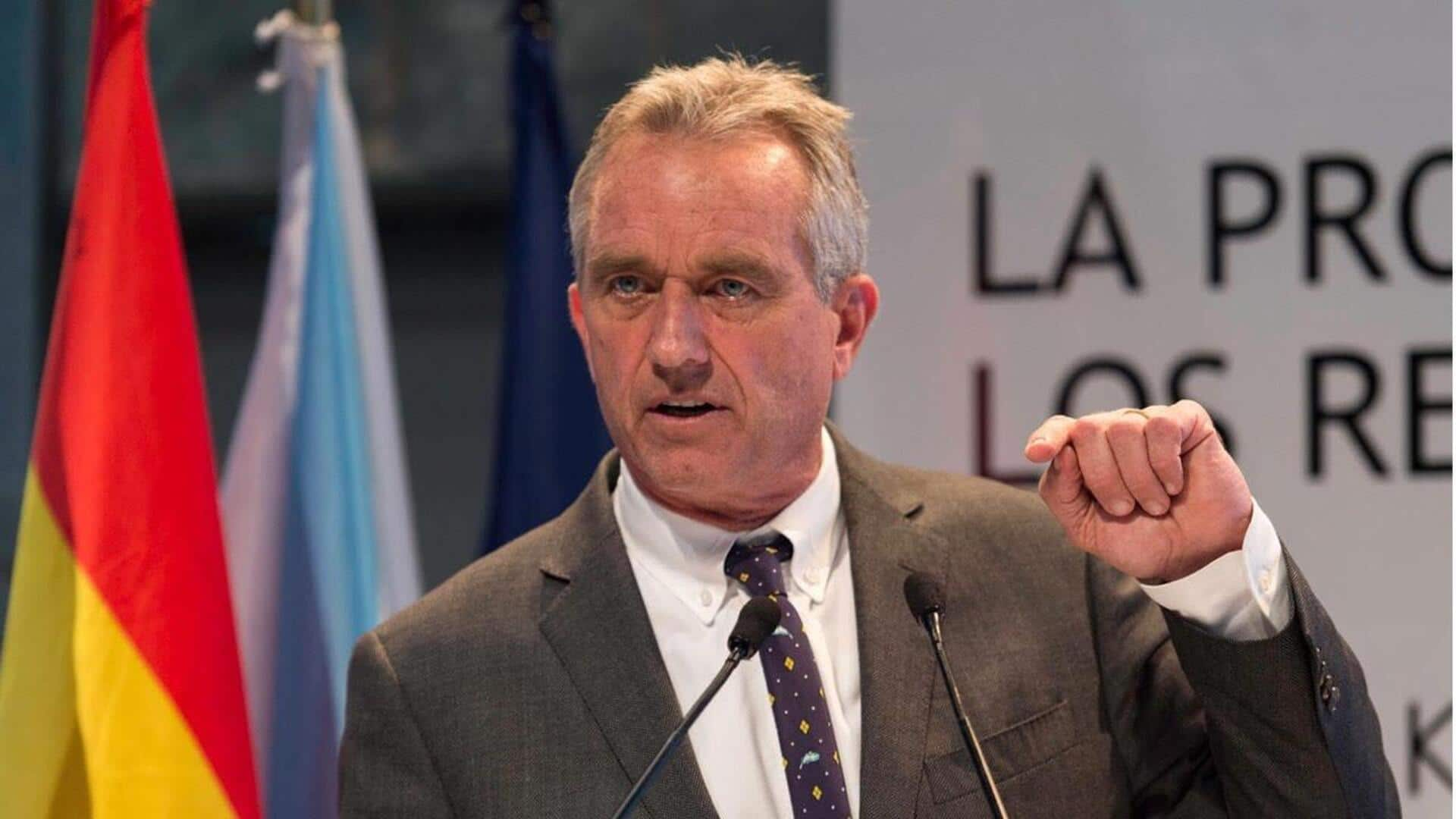
'Clear...present danger': Anti-vaxxer RFK Jr faces backlash after Trump nomination
What's the story
Former United States President Donald Trump has nominated Robert F Kennedy Jr, a notorious anti-vaccine activist and proponent of debunked health conspiracy theories, for the role of US Secretary of Health and Human Services. Trump announced the nomination on Truth Social, where he claimed Kennedy would restore agencies to "Gold Standard Scientific Research" and "Chronic Disease Epidemic." However, the nomination has drawn widespread criticism due to Kennedy's controversial public health views.
Health impact
Kennedy's actions linked to measles outbreak in Samoa
McAlpine pointed to an incident in Samoa where Kennedy's actions reportedly caused a dip in vaccination rates and a measles outbreak that killed 83 people. Kennedy however, has denied any responsibility for the outbreak's outcome. He has also advocated for removing fluoride from drinking water and promoted raw milk and ivermectin as health solutions—both controversial health practices.
Widespread disapproval
Kennedy's nomination criticized by political figures and physicians
Conservative pundit George Conway described Trump's recent Cabinet picks, including Kennedy, as possibly "the worst in American history." Robert Garcia, Democratic representative from California, called the nomination "insane," pointing to Kennedy's history as a vaccine denier. Pediatric physician Alastair McAlpine emphasized Kennedy's lack of medical training and past misinformation campaigns, adding it was hard to overstate what a "terrible decision the move was."
Health risk
Kennedy's nomination could lead to public health catastrophe: Critics
Public Citizen, a consumer advocacy group, has called Kennedy a "clear and present danger to the nation's health." The group cautioned that his appointment could lead to a public health disaster akin to Trump's management of the COVID-19 pandemic. Infectious disease physician Apu Akkad also expressed concerns over this nomination, emphasizing the need for evidence-based public health decisions.